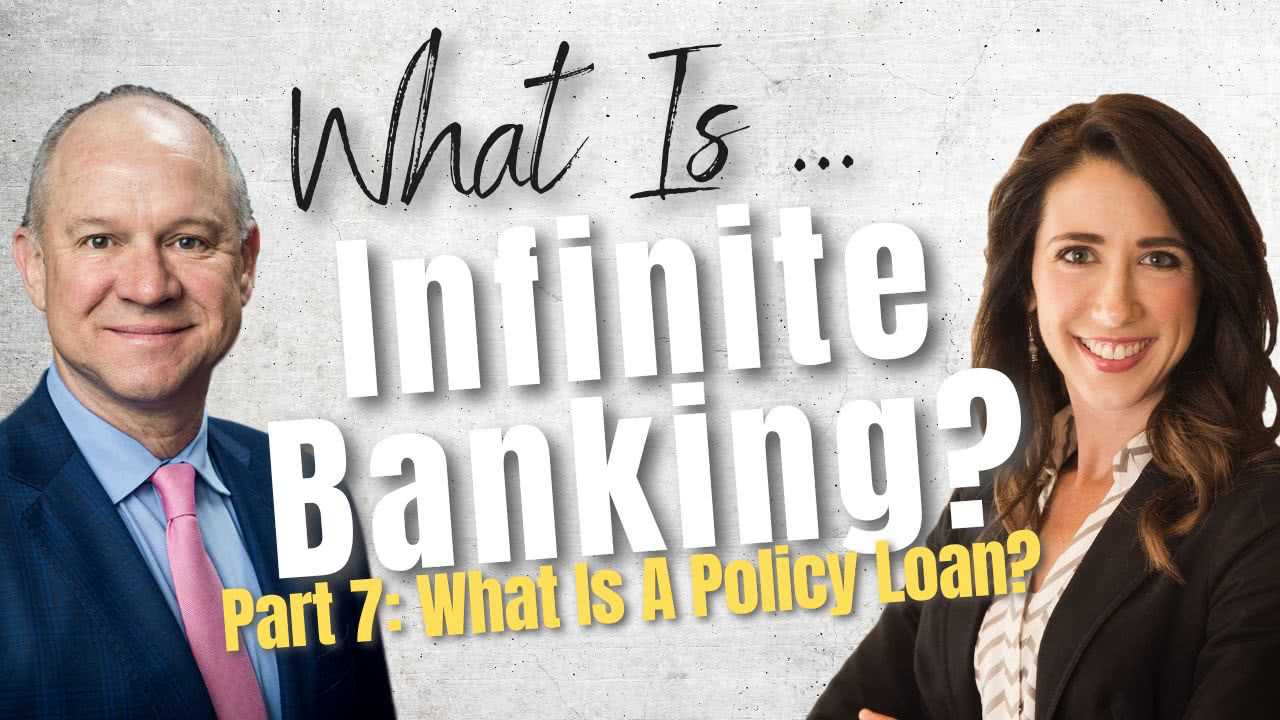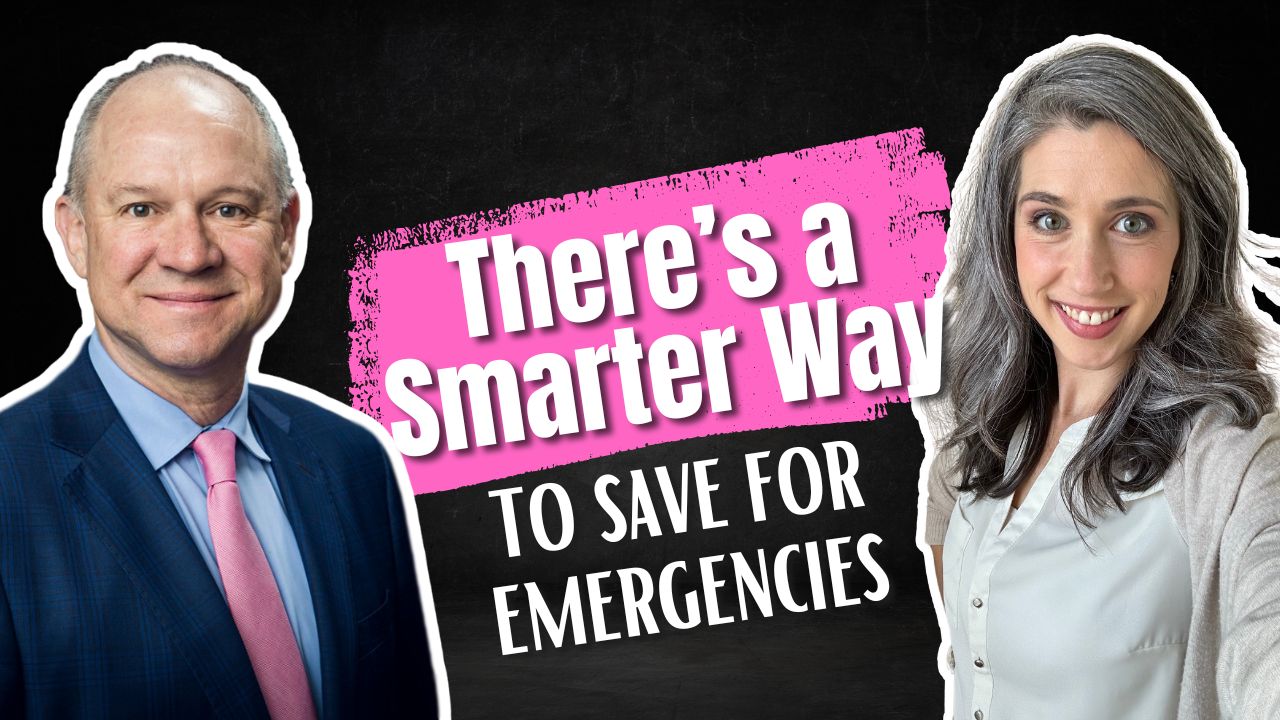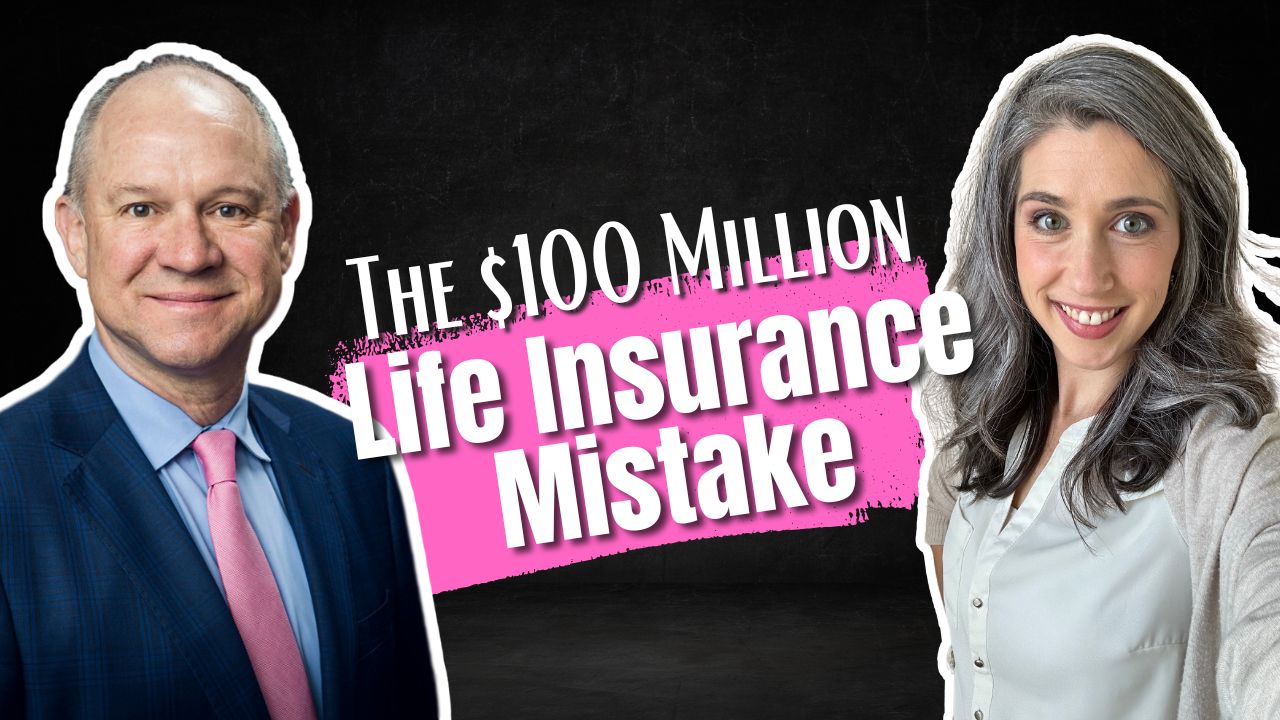
Infinite Banking, Part 7: What is a Life Insurance Policy Loan?
Are you wondering what is a life insurance policy loan, and how can it help you? Or maybe you’re already using Infinite Banking, but would like to explain it better to your spouse, your parents, your children, business partner, or friends.
Today, we’re unpacking the truth about the Infinite Banking Concept and the power of policy loans. Policy loans are part of what makes the infinite banking strategy work so well. We’re answering the most common questions we hear about policy loans, so you can be clear on exactly what they are and how they work. If you’re ready to learn more about policy loans and how you can implement them in your own life… tune in now!
Podcast: Play in new window | Download (Duration: 42:25 — 48.5MB)
Subscribe: Apple Podcasts | Spotify | Android | Pandora | Youtube Music | RSS | More
Table of contents
What is a Life Insurance Policy Loan?
A policy loan is money that you are borrowing from the life insurance company, using your cash value as collateral. The life insurance company is contractually obligated to allow you access without qualification to a policy loan. Then, they offer you a loan with an interest rate, which you can pay back at your own discretion (on your own timeline).
What is Financing?
While people typically think of financing as the process of borrowing money to fund something, we know that you finance everything you buy. The reason is that you’re either paying interest through a loan or line of credit, or you’re passing it up because you’re paying in cash (and losing the money you could have earned elsewhere).
[2:50] “We finance everything in our lives, and people don’t get that because people say, ‘I don’t have any debt, I just pay for everything in cash.’ Well, Nelson Nash made me realize that paying cash is still financing because you’re giving up the opportunity to make money on your cash that you actually pay. So you’re always financing. You’re either paying interest, or you’re giving up the ability to earn interest”
How Does Infinite Banking Provide a Solution for Financing?
Infinite banking provides the solution to the financing problem by allowing you to create a pool of money that allows you to finance anything you want without passing up interest. So while you may pay interest on a policy loan, you can also earn interest, while also potentially earning cash flow through your investments. Even without investments, though, infinite banking gives you a way to finance your life as efficiently as possible.
The reason infinite banking is so efficient is that, with a dividend-paying whole life insurance policy, you can save money, grow money, and use that money without interrupting your compounding interest. And you can do this thanks to the policy loan provision.
How Does Infinite Banking Give You Better Growth and Accessibility?
Infinite banking puts you in a position where you’re not only storing and growing capital in the policy, but you also have a contractual guarantee to access and use that cash through a policy loan. The policy loan may seem like an unnecessary hurdle to jump through, but by using other people’s money (the insurance company’s money), you can keep your account earning interest and dividends at its full potential. Not only is this incredibly efficient, but it also provides more certainty and stability than either a bank or the stock market.
How Does Infinite Banking Compare to Other Strategies for Storing Cash?
When you store cash in a whole life insurance policy designed for infinite banking, you’re able to prioritize growth, safety, and liquidity at the same time. Most other cash storage strategies only allow for one or two. For example, storing cash with the bank gives you (a little bit of) safety and liquidity. But it doesn’t do much to grow your money. An investment account might give you growth over time, but it’s not very liquid, nor is it particularly safe. Whole life insurance protects your income, helps you to grow your money with modest interest and dividends, and allows you to access your capital without interrupting the compound interest via a policy loan.
[17:23] “The problem is you’re interrupting the compound growth, which means you’re having a stop-start-stop-start effect with your compound interest. Which is the reason why nobody in our culture now feels any kind of emotional excitement about compound interest. Because nobody experiences the long-term effects of 50-70-80 years of compound interest growth. And if you have the ability to continue to earn that compound interest that never stops compounding, you would be more excited about compound interest.”
What is a Life Insurance Policy Loan?
A policy loan is money that you are borrowing from the life insurance company, using your cash value as collateral. The life insurance company is contractually obligated to allow you access without qualification to a policy loan. Then, they offer you a loan with an interest rate, which you can pay back at your own discretion (on your own timeline).
How Easy is it to Get a Policy Loan?
A policy loan is simple to obtain with your life insurance company. In order to get a loan, you must first have the amount that you wish to borrow available. That means that you cannot have that value already tied up in an outstanding loan, and your available cash value must equal what you wish to borrow.
Then, getting a loan is as simple as contacting the insurance company and requesting the loan. Generally, you can have the money deposited in your account in a few days.
It is important to note that you typically can’t collateralize your full cash value. Often, you can collateralize about 90%, give or take.
Do I Have to Qualify for a Policy Loan?
There is no application or qualification process to get a policy loan. Unlike other lenders, you don’t need a certain credit score, debt-to-income ratio, or other qualifiers to be approved. All that is required is cash value to collateralize.
What Does a Policy Loan Use as Collateral?
A policy loan uses your cash value account as collateral. Your cash value is the equity of your death benefit, which increases as you pay premiums and also grows with interest and dividends.
When you take a policy loan, the insurance company places a lien against your cash value. As you repay the loan, the cash value you can then use becomes replenished. So if you have $100k that you can borrow, and only take $10k, you have $90k that you can still borrow against later. As you repay it, you replenish your pool of $100k to borrow against, as well as any growth your cash value has accrued in the meantime.
How Does a Policy Loan Impact My Cash Value and Death Benefit?
When you take a policy loan, you collateralize your cash value, and as you pay back the loan, the collateral falls away. However, some people choose not to pay back a policy loan, or they pass away with an outstanding loan. When this happens, the insurance company reduces the death benefit by the loan and any interest.
Remember that the cash value is like the equity of your death benefit. This means that your heirs don’t get paid a death benefit plus the cash value; they only receive the death benefit. The cash value simply represents the accessible portion of the death benefit at the time.
Whose Money Am I Using in a Policy Loan?
When you take a policy loan, you’re not using your money, you’re using the insurance company’s money. They loan this money from their reserves, and when you pay interest on your loan, you pay that interest to the company. The money only comes from your policy if you default on the loan, and the company collects the collateral from your policy.
Why is it a Good Deal for the Life Insurance Company to Give You a Policy Loan?
Policy loans are not just great for you, they’re great for the insurance company because they have guaranteed collateral via your cash value. The insurance company knows that no matter what happens with the loan, they’ll see that money again, so for them, there’s very minimal risk. And the minimal risk is great for lenders. Because loans are low risk for the company, they can charge competitive interest rates and still make a profit, which then benefits the policyholders.
How Does My Money Continue to Compound Uninterrupted with a Policy Loan?
While it may seem like you’re pulling money from your cash value and then putting it back when you have a policy loan, you’re not. You’re actually using the life insurance company’s money and paying them back. Because you’re not using your cash value, it remains in your account and can earn interest and dividends like it normally would.
Depending on whether your life insurance company is direct recognition or non-direct recognition, the interest and dividends may be applied differently to your cash value when it’s collateralized. However, this difference is generally minimal, and you’re still earning interest and dividends in either scenario.
How Do Policy Loans Give Me More Control and Flexibility?
When you take a policy loan, there are several reasons you have more control and flexibility. One of the key factors is that you have control over your repayment schedule. When we say you have control, we mean it. You control how often you pay, how much you pay, and when. In fact. And you can change your mind about these factors whenever you want.
Because the insurance company assumes very little risk (they can recoup that money from your cash value if needed), they give policyholders significant control. This means that if you wanted to use a loan to finance an investment, and then pay the loan with the cash flow, you could—even if the investment didn’t start cash flowing for two years. This allows you to use the money on your own terms and replenish your leverageable cash value at your own pace.
Book A Strategy Call
Do you want to coordinate your finances so that everything works together to improve your life today, accelerate time and money freedom, and leave the greatest legacy? We can help! Book an Introductory Call with our team today at https://themoneyadvantage.com/calendar/ and find out how Privatized Banking, alternative investments, or cash flow strategies can help you accomplish your goals better and faster. That being said, if you want to find out more about how Privatized Banking gives you the most safety, liquidity, and growth… plus boosts your investment returns, and guarantees a legacy, go to https://privatizedbankingsecrets.com/freeguide to learn more.
Emergency Fund Alternatives: Liquidity That Protects Your Family—Without Sacrificing Growth
The Day the “Emergency Fund” Met Real Life Rachel here. Many tell us the same story: “I saved the emergency fund, but I’m worried I’m losing ground to inflation and missed opportunities.” Because for most people, the “emergency fund” is a lonely pile of cash—stuck in a corner doing next to nothing. It feels safe,…
Indexed Universal Life Lawsuit: Kyle Busch vs Pacific Life—and the Lessons Every Family Needs
Why the Indexed Universal Life lawsuit is a wake-up call The headlines about the Kyle Busch vs Pacific Life indexed universal life lawsuit sparked the same question I hear from thoughtful families: is my policy designed to serve me, or to serve a sales incentive? This isn’t tabloid noise. It’s a real-world reminder that choices…




